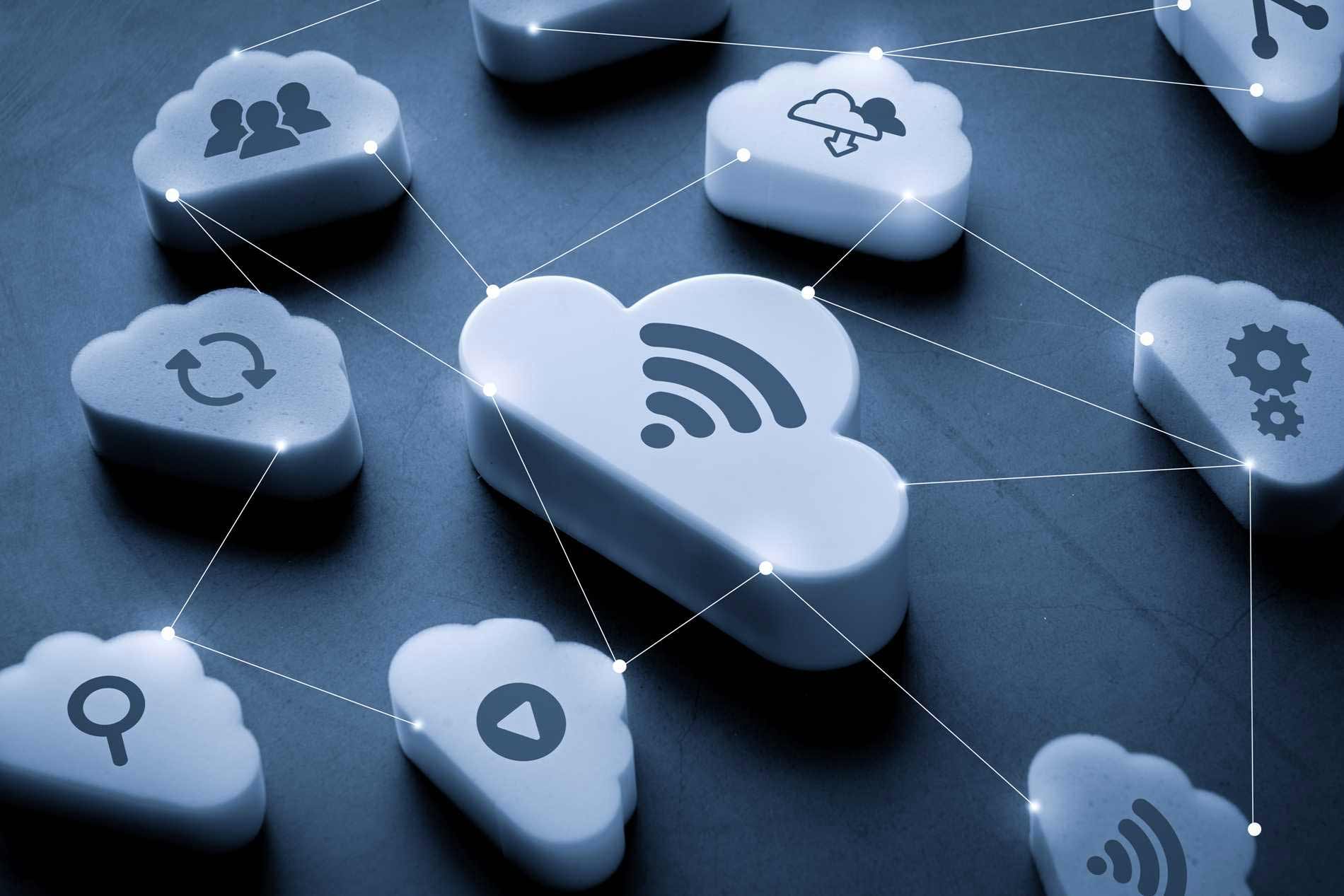Why Software For Home Care is Crucial for Caregivers

Technology has revolutionized the way we live our lives. Everything from communication to entertainment is now more accessible and efficient than ever before, thanks to the advances in software engineering. We can purchase goods online with a few clicks of a mouse, send messages instantly across oceans, and even access information on virtually any topic imaginable via search engines.
With such an abundance of technology available at our fingertips every day, it’s no wonder that software development has become essential for businesses everywhere. Businesses have used software solutions for decades now to streamline their operations by automating tasks such as payroll processing or customer service inquiries.
Software also allows companies to track data more efficiently which helps them make better decisions about how they run their business and manage resources effectively over time.
While large businesses are not alone in taking advantage of this powerful tool – home care providers have also seen immense benefits from utilizing specialized software for home care solutions specifically designed with caregivers’ needs in mind.
Home care providers need reliable tools that allow them to keep accurate records while providing quality patient-care services; these days most organizations simply cannot afford not to have an integrated system like this one place where they can store all pertinent data securely and easily share between professionals when necessary.
Let’s use this article as an opportunity to learn more about home care and the software that’s used in said industry so you can have a better understanding of its importance and how it works.
What do Caregivers Actually Do?
Caregivers are individuals who provide care to those who require assistance due to physical or mental disabilities, illnesses, or aging. This can be for a variety of reasons such as providing medical attention and help with everyday activities. Caregivers play an essential role in society; they help people lead independent lives and oftentimes give them an improved quality of life.
Caregiving includes a wide range of responsibilities which vary depending on the individual’s needs but typically include the following:
- Assisting with daily living activities:
- This includes things like cooking, cleaning, and running errands for the patient because they’re either fully or partially unable to do these tasks themselves.
- Administering medications:
- Caregivers must make sure the patient is taking their prescribed medication as directed by their doctor and keeping track of any changes in dosage or prescription.
- Providing companionship:
- Having someone to talk to can help patients feel less isolated, provide emotional support, and offer a sense of normalcy during times when they may not be able to socialize with others outside the home due to physical limitations or medical conditions.
- Monitoring health condition:
- Caregivers are responsible for tracking changes in a patient’s health such as weight loss/gain or noticing any new symptoms that may arise so they can report them back to the patient’s physician right away if necessary.
- Providing personal care services:
- This includes bathing, dressing, grooming (shaving), oral hygiene and other activities related directly to personal care needs that patients cannot do on their own anymore because of either age-related issues or disabilities which affect physical abilities like mobility problems caused by a stroke for example.
Keeping up with all these responsibilities requires an immense amount of effort from caregivers; however it’s made easier through homecare software solutions designed specifically for this purpose – helping caregivers manage multiple tasks and provide quality care to their patients.
Despite the numerous benefits of being a caregiver, there are many challenges that come along with it as well, such as:
- Lack of recognition and appreciation from family members or society in general for the hard work they do every day.
- Inadequate compensation for their services which can lead to financial struggles if they’re working full-time hours without adequate pay or benefits.
- Stressful situations due to having too much responsibility while dealing with difficult patients who may be uncooperative at times due to mental health issues or physical disabilities which cause pain and frustration on both sides of the equation (caregiver & patient).
- Long working hours because most caregivers are required by law not only during regular business hours but also nights, weekends, holidays, etc.. in order to meet all required needs for providing quality care throughout each 24-hour period; this can lead them feeling burnt out after long shifts with barely any time off in between shifts unless requested ahead of time in advance.
Caregivers have an incredibly difficult job requiring immense amounts of dedication – however, home care software can help alleviate some of the burdens that come along with being a caregiver, making their job much easier and more manageable.

How Home Care Software Helps
Home care software is an integrated system that helps caregivers manage their duties more efficiently and effectively, allowing them to provide quality care for the patient while freeing up their time so they can focus on other tasks.
Having a home care app makes a world of difference when it comes to managing, and keeping track of multiple patients and their information.
This kind of software provides a suite of features specifically designed with home health needs in mind – such as records management, scheduling assistance and appointment reminders, medication tracking capabilities, and much more.
Common features found in most homecare systems include:
- Electronic medical record (EMR) storage & retrieval:
- Caregivers can access patients’ past/current medical history from anywhere at any time which makes it easier for them to keep track of treatments or changes in medications over long periods without having to manually search through physical folders every time someone has a question about something related to the patient’s health condition.
- Scheduling & reminder tools:
- These help caregivers set up appointments quickly and easily by sending out automated notifications when new appointments are made or existing ones need updating; this reduces stress levels significantly because now there’s no need for manual follow-up calls anymore since everyone involved knows exactly what’s going on at all times throughout each day/week with just one glance instead of multiple back-and-forth conversations trying not to miss anything important.
- Online forms:
- This feature allows caregivers to fill out and submit required documentation electronically instead of having to print and physically sign hard-copy versions; this saves time, money, and energy while making sure everything remains organized in one place at all times with no chance for mistakes or miscommunication between different parties due to lost paperwork.
- Medication tracking & reminders:
- Caregivers can set up notifications that remind them when it’s time for patients’ medications/treatments so they don’t forget any doses – this is especially helpful if the patient requires multiple dosages throughout each day because now there’s an easy way of keeping track without relying on memory alone which could lead to errors over long periods of time.
- Payment processing tools:
- Home care software makes billing easier by allowing users to input payment information directly into the system which then sends out automated invoices when necessary; this eliminates manual data entry errors as well as saves a lot of headaches related not only to payments but also administrative tasks such as filing insurance claims since most systems come with features like auto-populating fields from existing records stored within the database itself making it much faster than traditional methods used before digital solutions were available.
- Reporting capabilities:
- Caregivers can generate reports quickly and accurately for both internal or external use (such as reporting to insurance companies) with just a few clicks – this helps them stay organized and proactive when it comes time to submit necessary documentation which in turn makes the entire process much smoother overall.
- Secure data storage:
- All patient information is securely stored within the software so caregivers can access it from anywhere at any time, reducing paperwork clutter while making sure all relevant data remains up-to-date without having to worry about losing important documents due to human error or other factors outside their control.
Home care software has revolutionized how caregivers manage their duties; these days they don’t have nearly as many administrative tasks to worry about as before because now they can focus more on the actual care of their patients instead of spending countless hours filling out paperwork or updating records manually.
Caregivers all over the world are now using software solutions to help them do their jobs more efficiently and effectively, which in turn helps improve the quality of care they provide.
This is especially true for home care providers who need reliable tools that allow them to keep accurate records while providing quality patient-care services; these days most organizations simply cannot afford not to have an integrated system like this one place where they can store all pertinent data securely and easily share between professionals when necessary.
Upgrading Your Workflow
There are many ways to improve one’s workflow as a caregiver, and most of them have nothing to do with technology. A few simple tips such as setting up a daily routine for yourself or delegating tasks when possible can help you save time and energy throughout each workday; this will also free up more space in your mind so that you’re better able to focus on the important aspects of caregiving instead of worrying about mundane details like paperwork or administrative tasks.
Additionally, having regular conversations with family members (if applicable) can go a long way towards establishing trust which is essential for providing quality care over long periods without feeling burnt out due to lack of recognition/appreciation from those close ones involved in the patient’s life.





